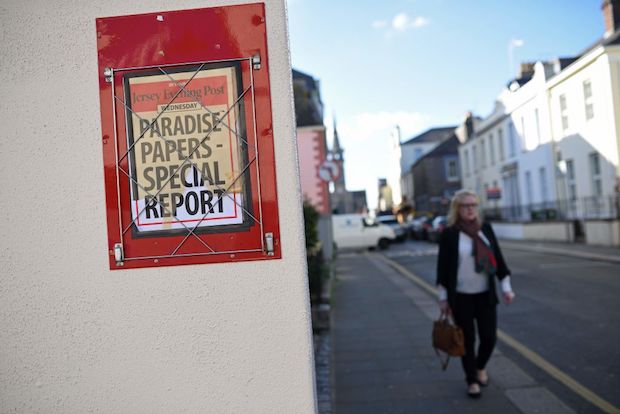What would a perfect tax system look like? For companies, profit taxes should be competitively low, to encourage inward investment, with generous reliefs for start-ups, research and capital projects; the corporate tax code should be designed to generate rising productivity and prosperity rather than to maximise short-term tax revenues, and companies should acknowledge a duty to contribute wherever their profits arise. For individuals, income tax rates should rise only to the lowest level that maximises revenue collection and thresholds should be high enough to keep low earners out of the net, while pension savers and first-time home-buyers should be incentivised. Citizens and companies alike should be proud to pay fair taxes without feeling penalised; and tax consultants should be as rare as taxidermists.
But of course it’s not like that. And so we’ve had to endure last week’s indigestible splurge of revelations from the so-called Paradise Papers — presented by the BBC in tones of wealth-hating venom that entirely failed to distinguish between cunning wheezes to help the expensively advised avoid paying taxes where they live, and the embarrassment of a small offshore holding discovered deep in the investment port-folio of the Duchy of Lancaster, an otherwise admirable property business that happens to pay the monarch’s salary.

Get Britain's best politics newsletters
Register to get The Spectator's insight and opinion straight to your inbox. You can then read two free articles each week.
Already a subscriber? Log in








Comments
Join the debate for just £1 a month
Be part of the conversation with other Spectator readers by getting your first three months for £3.
UNLOCK ACCESS Just £1 a monthAlready a subscriber? Log in